Adelina Doltra
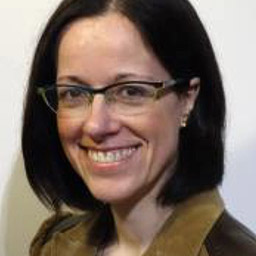
Adelina Doltra Magarolas, MD, PhD. Staff Cardiologist at Cardiac Imaging Unit at Hospital Clinic Barcelona.
The Institut d'Investigacions Biomèdiques August Pi i Sunyer (IDIBAPS) is a public consortium whose members are the Catalan Government, the Hospital Clínic of Barcelona, the University of Barcelona’s School of Medicine and the CSIC Biomedical Research Institute in Barcelona. It specializes in translational research with minimisation of barriers between basic science and patient treatment as its main goal. Together with the Hospital Clínic of Barcelona, IDIBAPS provides researchers with first-class laboratories, equipment and scientific support.
The Cardiac Imaging Unit at the Hospital Clinic and its associates form a group of excellent clinicians and researchers conducting a multidisciplinary approach covering multiple disciplines in cardiology - from basic studies to translational clinical research and therapy. The main lines of research include pathophysiology and treatment of atrial fibrillation, cardiac resynchronization therapy and effect of sports on physiology and cardiac arrhythmias, amongst others.
To speak for IDIBAPS and our group - we are thrilled to participate in another project funded by the Marie Sklodowska-Curie Actions. Personalised In-Silico Cardiology (PIC) is focused on personalized and preventive management of disease - a concept that is becoming paramount in the world of medicine. Such goals can only be achieved through the collaboration of experts in various related fields working together on a common problem. Through our past collaborations with engineering research groups on computational imaging, we learned the importance of acquiring a common language in approaching and solving clinically relevant problems. Such collaborations are becoming essential in reaching a real predictive, personalized and participative healthcare delivery. PIC is a platform to further develop these important ideas, enabling 15 future leaders to address barriers between sectors and disciplines.
Peter Mortier
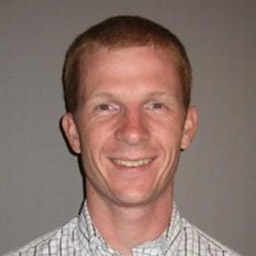 Peter Mortier has a Master of Science in Civil Engineering and obtained his PhD degree in Biomedical Engineering at Ghent University (Belgium). After his PhD, Peter co-founded FEops where he holds the position of Chief Technology Officer (CTO). He is also a member of the Board of Directors of FEops.
Peter Mortier has a Master of Science in Civil Engineering and obtained his PhD degree in Biomedical Engineering at Ghent University (Belgium). After his PhD, Peter co-founded FEops where he holds the position of Chief Technology Officer (CTO). He is also a member of the Board of Directors of FEops.
Within FEops, we focus on the development of novel personalised computational modelling and simulation solutions for complex cardiovascular interventions. By combining pre-operative CT imaging with advanced computer simulations, we are able to predict how a certain medical device will interact with a specific patient. This technology empowers medical device companies to bring superior products faster to the market and enables physicians to personalise patient care. The PIC early stage researcher (ESR) at FEops will be involved in the development and validation of predictive models for mitral valve replacemen.
Links
Espen W. Remme
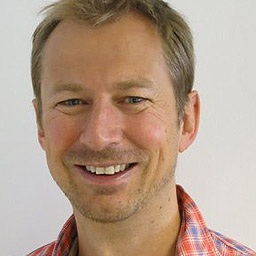
B. Eng. degree (høyskoleingeniør) from Telemark Institute of Technology, M. Sc. Eng. degree (sivilingeniør) and Ph.D. (doktoringeniør, Dr.ing.) in engineering cybernetics from Norwegian University of Science and Technology.
Current research focus:
Cardiac mechanics, myocardial deformation, hemodynamics, diastolic function, dyssynchrony, cardiac resynchronization therapy, mathematical simulation models of the heart, cardiac motion sensors.
Publications available on Pubmed.
My aspiration is to gain new insights into mechanisms of cardiovascular disease and to develop new diagnostic modalities which quantify disease processes and cardiac function. The idea is to develop better diagnostic understanding and solutions and to translate these into improved clinical practice.
I think the work we do with the cardiac motion sensors illustrates this very well: we have performed several studies gaining new understanding of the myocardial deformation and motion during ischemia and dyssynchrony. This knowledge is then used in the development of motion sensors and analysis of signals from these sensors to extract valuable diagnostic information to aid clinicians in their treatment of patients. The two PIC early stage researchers (ESRs) at the Intervention Center will continue this development of sensors and translate our research to improve patient care. We have already one startup company Cardiaccs that is about to get our first sensor CE-approved for use in patients. The ESRs will be attractive employees for Cardiaccs or another startup company we are planning, or for established medical technology companies
Eigil Samset
I am Digital Program Manager in GE Healthcare Cardiovasvular Ultrasound. My responsibility is research and product development in the area of artificial intelligence and cloud services. I also hold a 20% research professor position at University of Oslo. I have a MSc from NTNU in Trondheim in engineering cybernetics. My PhD is from University of Oslo in MRI-guided therapy and my post.doc. is from Harvard University in MRI-guided cardiac interventions.
Before joining GE in 2011, I have worked 11 years as an academic researcher and 3 years as a manager in the oil and gas business. My passion is to make a real difference in patient care globally by developing new insight and tools that can be embedded into medical products and used clinically.
In the PIC project we will apply emerging deep learning methods to enable improved productivity and reproducibility in cardiovascular diagnosis and care pathway optimization. Together with the ESR recruited by GE and research partnerships and ESRs in the PIC network, we will advance to state of care and bring personalization in cardiology a major step forward.
Publications available on Researchgate
Marta Sitges Carreño
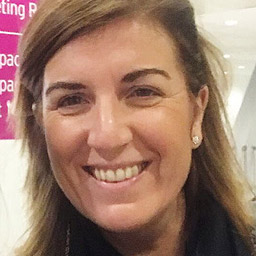
Marta Sitges Carreño, MD, PhD. Head of Cardiac Imaging Unit at Hospital Clinic Barcelona and Clinical Supervisor on PIC.
The Institut d'Investigacions Biomèdiques August Pi i Sunyer (IDIBAPS) is a public consortium whose members are the Catalan Government, the Hospital Clínic of Barcelona, the University of Barcelona’s School of Medicine and the CSIC Biomedical Research Institute in Barcelona. It specializes in translational research with minimisation of barriers between basic science and patient treatment as its main goal. Together with the Hospital Clínic of Barcelona, IDIBAPS provides researchers with first-class laboratories, equipment and scientific support.
The Cardiac Imaging Unit at the Hospital Clinic and its associates form a group of excellent clinicians and researchers conducting a multidisciplinary approach covering multiple disciplines in cardiology - from basic studies to translational clinical research and therapy. The main lines of research include pathophysiology and treatment of atrial fibrillation, cardiac resynchronization therapy and effect of sports on physiology and cardiac arrhythmias, amongst others.
To speak for IDIBAPS and our group - we are thrilled to participate in another project funded by the Marie Sklodowska-Curie Actions. Personalised In-Silico Cardiology (PIC) is focused on personalized and preventive management of disease - a concept that is becoming paramount in the world of medicine. Such goals can only be achieved through the collaboration of experts in various related fields working together on a common problem. Through our past collaborations with engineering research groups on computational imaging, we learned the importance of acquiring a common language in approaching and solving clinically relevant problems. Such collaborations are becoming essential in reaching a real predictive, personalized and participative healthcare delivery. PIC is a platform to further develop these important ideas, enabling 15 future leaders to address barriers between sectors and disciplines.
Find an early stage researcher
Jorge Corral - Yingjing Feng - Joao Filipe Fernandes - Valeria Galli - Andy Gilbert - Syed Hassaan - Filip Loncaric - Hongxing Luo - Maciej Marciniak - Francesca Margara - Cristobal Rodero - Mehrdad Shahmohamadi - Mariana Sousa - Manuel Villegas - Ali Wajdan - Philip Westphal
Jorge Corral
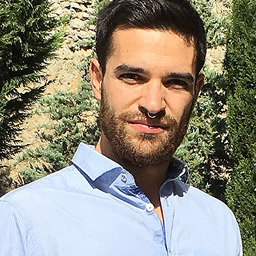
M.S. and B.S. in Chemical Engineering at University of Valladolid, conducted the master thesis at Imperial College of London and completed post-master research stays at UC Berkeley (neuroengineering) and Harvard Medical School (chest image).
Currently pursuing a DPhil in Engineering Science at Oxford University as a PIC fellow, aiming to gain a better understanding of cardiomyopathy. More specifically, using a combination of ML techniques and personalised models to assess the heart performance for different disease geno- and phenotype structures.
Diverse and wide international working experience from junior researcher in 6 different research groups (Biomedical Image Analysis, ACIL, Maharbiz´s Group, CPSE, HPP and BIOFORGE) to internships in 2 companies (Michelin and Lesaffre).
Able to quickly adapt to new environments, loves diversity and new challenges.
Project: Cardiomyopathy under the lens of computer models
PIC Winter School 2020 Talk: "Automated 3D shape analysis of the heart: from 2D CMR to physiological simulations"
- Corral Acero J. et al., "SMOD - Data augmentation based on Statistical Models of Deformation to enhance segmentation in 2D cine cardiac MRI" Functional Imaging and Modelling of the Heart FIMH 2019. Lecture Notes in Computer Science, vol 11504. Springer, Cham.
- Corral Acero J. et al., "Left Ventricle Quantification with Cardiac MRI: Deep Learning Meets Statistical Models of Deformation" Statistical Atlases and Computational Models of the Heart 2019. Lecture Notes in Computer Science, vol xxxxx. Springer, Cham. (Accepted)
- Corral Acero J. et al., "The "digital twin" to enable the vision of precision cardiology", European Heart Journal (In revision, as part of the PIC consortium work)
- Best paper in medical imaging, Functional Imaging and Modelling of the Heart 2019.
- First prize, Left Ventricle Full Quantification Challenge MICCAI 2019.
- Diario de Valladolid: http://www.diariodevalladolid.es/amp/noticias/innovadores/ingeniero-llega-corazon_133248.html
- University of Oxford: https://www.eng.ox.ac.uk/news/best-paper-award-is-huge-boost-for-cardiac-imaging-researchers/.
- MICCAI 2019 conference, Shenzhen (October 2019).
- FIMH 2019 Conference, Bordeaux (June 2019).
- Department of Engineering Science Researchers Conference, Oxford (March 2019).
- 7th annual Oxford Energy Day | Digital Change and Energy, Oxford (October 2018).
- From Space to Spacetime, Oxford (June 2018).
- MedIAN Big Data & Image Analysis, Oxford (May 2018).
- Cardiovascular Clinicians & Academics Knowledge Exchange, London (April 2018).
- Oxford Photonics Day 2018, Oxford (April 2018).
- AIMday Biomedical Imaging 2018, Oxford (April 2018).
- VPH Summer School, Barcelona (June 2019).
- Provision of diagnostic and prognostic value by personalization, Canfranc (March 2019).
- Statistical & mechanistic modelling: mutual synergies in cardiology, Bordeaux (November 2018).
- Medical Imaging Summer School 2018, Sicily (July 2018).
- Simula Summer School in Computational Physiology, Oslo (June 2018).
- PIC Kick-off meeting 2018, London (March 2018).
- IBME Cluster seminar series (February 2018 – Present).
- Machine Learning reading group (February 2018 – Present).
- PIC webinar serie (March 2018 – Present).
- Lunch & Learn IBM series (February 2019 - June 2019)
- HCLS Seminar: AI Life cycle: Putting AI to practice (May 2019).
- Digital health research – moving from ideology to practicality (May 2019).
- Advanced Presentations (January 2019).
- iSkills for the Medical Sciences Division: Introduction to literature searching for DPhils (Nov 2018).
- Google AI seminar (July 2018).
- Optimizing your time at Oxford (June 2018).
- Bodleian iSkills: Getting started in Oxford Libraries (February 2018).
- BM secondment, New York (March - July 2019).
- Hospital secondment (TBD 2020).
- VPH student
- MICCAI society
- British Machine Vision Association
Yingjing Feng
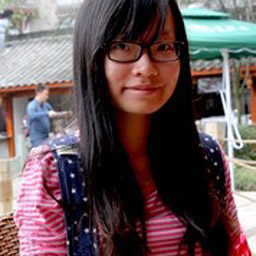
My name is Yingjing Feng. I received my master degree with distinction in Computing with Machine Learning in Imperial College London. I will work with Dr. Edward Vigmond in the University of Bordeaux on project F14, on use of non-invasive mapping to treat atrial arrhythmias.
My research interests lie within the intersection of cardiac arrhythmia treatment and mathematical modelling, which includes using various techniques such as statistical machine learning, complex system, and PDE modeling.
My previous work included auto-learning an efficient cardiac mapping strategy for radio frequency catheter ablation through the expert demonstration, in which the learning skill was developed by maximizing the performance of the cardiac modelling with minimal mapping costs. Through the PIC project, I am looking forward to learning more and contributing to the treatment of cardiac conditions.
You could find me in ResearchGate.
Secondments: Academic secondment to London. 26th June to 23rd July 2019.
Project: Use of non-invasive mapping to treat atrial arrhythmias
PIC Winter School 2020 Talk: "Non-invasive mapping of atrial ectopic beats"
Joao Filipe Fernandes
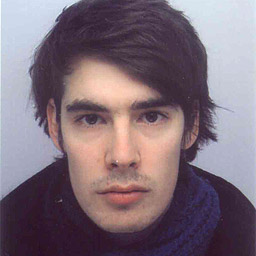
I am Joao Filipe Fernandes, a Biomedical Engineer from Portugal. I did my studies in the Faculty of Sciences of the University of Lisbon, with 2 internships abroad - one in Oxford and one in Berlin for my bachelor and master projects respectively. Then I worked around 4 years in Berlin in German Heart Center Berlin and Charite and now I changed to London to embrace this new project.
I have focused mainly in cardiovascular image processing with a touch of modelling. Topics such as blood pressure, blood kinetic energy, heart energetics, biomechanical heart modelling parameterization are not strange to me. What do I want for the future?... A better World! My goal is to help the biggest amount of people I can, so to improve their health and treatment, l am in the right place at the right time with PIC project.
Project: Non-invasive estimation of central blood pressure and flow inefficiencies
PIC Winter School 2020 Talk: "Non-invasive estimation of central blood pressure and flow inneficiencies"
- Non-invasive estimation of relative pressure in turbulent flow using virtual work-energy. David Marlevia, Hojin Ha, Desmond Dillon-Murphy, Joao F. Fernandes, Daniel Fovargue, Massimiliano Colarieti-Tosti, Matilda Larsson, Pablo Lamata, C. Alberto Figueroa, Tino Ebbers, David A. Nordsletten. Under review in Medical Image Analysis.
- The "digital twin" to enable the vision of precision cardiology. Jorge Corral Acero, Francesca Margara, Maciej Marciniak, Cristobal Rodero, Filip Loncaric, Yingjing Feng, Andy Gilbert, Joao Filipe Fernandes, Syed Hassaan, Ali Wajdan, Manuel Villegas, Mariana Sousa Santos, Philip Westphal, Mehrdad Shamohammdi, Hongxing Luo, Paul Leeson, Paolo DiAchille, Sasah Gurev, Manuel Mayr, Liesbet Geris, Pras Pathmanathan, Tina Morrison, Richard Cornelussen, Frits Prinzen, Tammo Delhaas, Ada Doltra, Marta Sitges, Edward Vigmond, Ernesto Zacur, Vicente Grau, Blanca Rodriguez, Espen Remme, Steven Niederer, Peter Mortier, Kristin McLeod, Mark Potse, Esther Pueyo, Alfonso Bueno-Orovio, Pablo Lamata. Under review in European Heart Journal.
Distribution of myocardial work in arterial hypertension – insights from non-invasive left ventricular pressure-strain relations. Filip Loncaric, Maciej Marciniak, Loredana Nunno, Maria Mimbrero, Joao F. Fernandes, Dora Fabijanovic, Laura Sanchis, Adelina Doltra, Silvia Montserrat, Maja Cikes, Pablo Lamata, Bart Bijnens, Marta Sitges. Under review in Rev Esp Cardiol.
- Power Pitch + Digital Poster: Enhanced non-invasive pressure drop and flow inefficiencies quantification via 4D-flow MRI. 27th ISMRM conference, Montreal, May 2019.
- Poster: Flow profile for a better non-invasive pressure drop in CoA. 32nd ESC Congress + World Congress of Cardiology 2019, Paris, August/September 2019.
- Oral Presentation: Inaccuracies of clinical pressure gradient measurements: Quantification of pressure recovery in aortic valve conditions. 5th VPH conference 2018, Zaragoza, September 2018.
- Oral Presentation: Inaccuracies of clinical pressure drop: Quantification of pressure recovery in bicuspid aortic valve. Frontiers of Simulation and Experimentation for Personalised Cardiovascular Management and Treatment 1st VPH-CaSE conference, London, July 2018.
- Invited talk : MRI-based and time-shift corrected pressure gradients in aortic coarctation. Biomedical Engineering KCL– Department Seminars, London, November 2017.
- Harry Potter MRI 4D-flow contest winner, MRI 4D-Flow Workshop, York, June 2019.
- Full room Kalostasis project (Have you ever wondered how it feels to stand inside a pumping heart?). developed together with Pablo Lamata, Cellule and Lucy Hardcastle design studios, London Design Festival, V&A Museum, London, September 2019.
- The future of medicine: Digital Twin for personalized diagnosis and treatment. European Researchers’ Night – Topic: SCICITY - Science in the city, National Museum of Science and Natural History, Lisboa, September 2019.
- 2 month in Hospital Clinic Barcelona (September and October 2018).
- 2 weeks in General Electric Vignemag Oslo (19th to 30th August 2019).
Valeria Galli
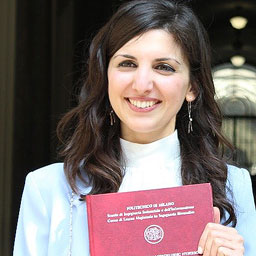 I am a young and enthusiastic graduate determined to become a valuable researcher.
I am a young and enthusiastic graduate determined to become a valuable researcher.
I aimed at an European project because from my experiences abroad during University I truly had the chance to open up too new perspectives and put myself at test, to collaborate with inspiring researchers and grow personally by gaining independence.
I value collaboration because I believe it is the most effective (and most enjoyable!) way of learning and of living, thus being an active part of a broader network well fits my aspiration. Together with the non reseach related soft skills and team building events this is a great chance and I will make the best of it to acquire knowledge, build a network and become the researcher and engineer I want to be.
Valeria joined FEOPs on Monday 29th July 2019
Project: Optimization of the choice and configuration of valve prosthesis
PIC Winter School 2020 Talk: "Optimization of the choice and configuration of valve prostheses: the case of TAVI"
Andy Gilbert
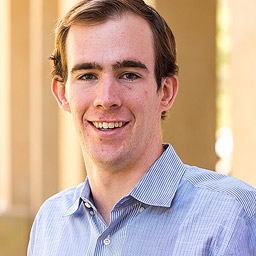 I joined the cardiovascular ultrasound R&D team in GE Healthcare to develop machine learning solutions for robust extraction of anatomical, pathological and pathophysiological features from cardiac ultrasound images. My research broadly focuses on training neural networks to understand the functioning of the heart through ultrasound images and visualize features relevant for clinical diagnosis. I’m working to bring these novel methods into GE Healthcare’s ultrasound scanners and the diagnostic pipeline used by physicians across the world.
I joined the cardiovascular ultrasound R&D team in GE Healthcare to develop machine learning solutions for robust extraction of anatomical, pathological and pathophysiological features from cardiac ultrasound images. My research broadly focuses on training neural networks to understand the functioning of the heart through ultrasound images and visualize features relevant for clinical diagnosis. I’m working to bring these novel methods into GE Healthcare’s ultrasound scanners and the diagnostic pipeline used by physicians across the world.
I have always been drawn towards research in the intersection between engineering and the human body. I received my BS from the honors program in electrical engineering at the University of Utah where my research focused on computational modeling of brain machine interfaces. I received an MS in electrical engineering from Stanford University where I researched and helped develop brain inspired computing devices. During my final year at Stanford I focused on AI designed for usability, co-founding and leading the engineering team for TRVISE, a company applying machine learning to build a personalized recommendation system for travelers.
Project: Machine learning of ultrasound data: robust motion and new risk scores
PIC Winter School 2020 Talk: "Generating synthetic labeled data from existing anatomical models (An example with echocardiography segmentation)"
Syed Hassaan Ahmed Bukhari
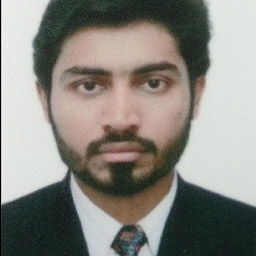
I received the BSc. degree in Electrical Engineering from the University of Engineering and Technology
(UET), Pakistan, in 2015. I received the M.S. degree in Electrical Engineering from the National University of Sciences and Technology (NUST), Pakistan, in 2017.
During 2015 (March-September) , I was a Teaching Assistant at the department of Electrical Engineering, Sharif College of Engineering & Technology, Lahore, Pakistan. In September 2017, I started my Master Studies in Electrical Engineering from the National University of Sciences and Technology (NUST), Pakistan under the supervision of Prof. Dr. Muhammad Tahir Zaidi and Prof. Dr. Imran Akhtar. My Master Thesis aimed at the ECG Signal Processing & Noise Removal from ECG and the identification of Cardiac Arrhythmias using Heart Rate Variability (HRV) analysis and Wavelet Transform. I received research travel grant for China (June, 2017) and Japan (August, 2017) from Higher Education Commission (HEC), Pakistan. I got best paper presenter award in China and Japan for presenting my research papers.
Since October 2015, I am working as a Laboratory Engineer at University of WAH, Pakistan. My current Research aims at the identification and Classification of Cardiac Arrhythmias using Signal Processing and Machine Learning Techniques. I want to become an excellent researcher in the field of Electrical and Bio Medical Engineering.
Project: Cellular electrophysiology from electrical body recordings
PIC Winter School 2020 Talk: "Serum electrolyte levels from the electrocardiogram: characterization, estimation and arrhythmic risk prediction in chronic kidney disease patients"
Filip Loncaric
During the final year of medical school, after working as a coordinator on an international acute coronary syndrome registry (ISACS-CT), I was invited to join a multicenter, randomized, double-blind, parallel group, active-controlled study (PARAGON-HF). Initially I worked as a study coordinator, becoming a sub-investigator after a year of involvement. This experience was crucial for my decision to enrol in a PhD program before starting my desired speciality training in Cardiology.
I enjoy the process of research requiring dedication, precision, innovation and imagination. The Personalised In-Silico Cardiology (PIC) project offers more than one can ask for: it is an international project bringing together prestigious medical universities, engineering and medical fields, and key players in the related industries. Participating in such a project would mean developing as a researcher, learning about what it takes to be a successful part of a large team and developing contacts for various projects that the future may bring.
I am excited about the idea of having time dedicated to doing scientific work in a setting that is supportive and formative. I feel that an opportunity to be a part of such a programme would be a unique work experience that would play a crucial part in guiding my career, both medical and scientific.
Project: Obstructive dilated cardiomyopathy and valve diseases
Event: Cardiopulmonary Resuscitation (CPR) hands-on Workshop at 4th VPH Summer School
PIC Winter School 2020 Talk: "Phenotyping left ventricular hypertrophy based on multimodality imaging and machine learning"
Hongxing Luo
I graduated as an undergraduate student from Lanzhou University in 2015 and started my master’s study at Zhengzhou University. My first job focused on the applications of three-dimensional-printed cardiac models for the preoperative and postoperative evaluation of structural heart diseases. Then I was attracted by the unsolved problems of heart failure and thus focused on the diagnosis and treatments of heart failure, especially heart failure with midrange and preserved ejection fraction.
Under the supervision of Prof. Frits Prinzen, I will start my PhD as one of Early Stage Researchers of the Personalised In-silico Cardiology project in 2018. My job will focus on computer simulations of the signals derived from cardiac sensors in the well-known CircAdapt model.
Project: Preclinical validation and assessment
PIC Winter School 2020 Talk: "Heart sounds for cardiac resynchronization therapy optimization"
Maciej Marciniak
As a PIC fellow I focus on computational cardiac anatomy and the search for novel shape biomarkers, to improve the diagnostic metrics used nowadays. Last year I completed my Master’s degree in Robotics and Intelligent Systems at the University of Oslo, where I used machine learning analysis to describe the pathophysiology of ventricular fibrillation in the setting of an acute first myocardial infarction. Before that, I obtained a B.Sc. in Automation Control and Robotics in Poznan, Poland.
Project: Computational cardiac anatomy: novel shape biomarkers
Find more about my research.
PIC Winter School 2020 Talk: "Computational cardiac anatomy: novel shape biomarkers"
Francesca Margara
My name is Francesca Margara and I joined the Computational Cardiovascular Science group at the University of Oxford to develop in-silico multiscale models of the electromechanical activity of the human ventricles to explain the cardiac safety and efficacy of pharmacological action in non-diseased versus diseased conditions. I’m working in collaboration with Janssen Pharmaceutica, the Food and Drug Administration and the John Radcliffe Hospital at Oxford. My research aim is to develop very close interactions with scientists, clinicians and pharmacologists in academia, hospitals and industry to be able to translate my work from basic science to clinical and industrial applications.
I received a bachelor’s and master’s degree in Biomedical Engineering from the University of Bologna, Italy. My bachelor’s thesis, “Study and assessment of electrical and structural remodeling in Atrial Fibrillation”, was developed under the supervision of Prof. Cristiana Corsi, in collaboration with Bufalini Hospital (Cesena, Italy) and St. Jude Medical. For my master's thesis, “Phenotypic variability of a single cardiac sodium channel mutation: a multi-scale computational approach”, I spent 6 months at the Computational Cardiovascular Science group, University of Oxford, under the supervision of Dr. Alfonso Bueno-Orovio, Dr. Xin Zhou and Prof. Stefano Severi, working on in-silico populations of models both at cellular and tissue levels.
Project: Personalised analysis of drug safety and efficacy
PIC Winter School 2020 Talk: "Investigating hypertrophic cardiomyopathy pathophysiology using human-based computational and experimental approaches"
- Gordon Research Seminar and Conference on Cardiac Arrhythmia Mechanisms (GRS/GRC) held March 30th, 2019 - April 5th, 2019. Poster presentation.
- Oxford 3Rs (Replacement, Refinement and Reduction of Animals in Research) Day held April 8th, 2019 in Oxford (UK). Poster presentation.
- Mechano-Electric Coupling and Arrhythmias held September 4th-7th, 2019 in Freiburg (Germany). Poster Presentation. Title: A Novel Human-Based Multiscale Modelling and Simulation Framework of Cardiac Electromechanical Function to Investigate Drug Safety and Efficacy).
- Safety Pharmacology Society Annual Meeting held September 23rd-26th, 2019 in Barcelona (Spain). Poster Presentation.
- Industrial secondment at Janssen-Pharmaceutical Companies of Johnson & Johnson (Beerse, Belgium). September 10th-21st 2018.
- Clinical Secondment: JR Hospital (Oxford, UK). Planned for November-December 2019.
- Margara F. et al., in preparation, to be submitted by the end of January 2020.
- Levrero-Florencio F., Margara F., E. Zacur, A. Bueno-Orovio, Z. J. Wang, A. Santiago, J. Aguado-Sierra, G. Houzeaux, V. Grau, D. Kay, M. Vazquez, R. Ruiz-Baier, B. Rodriguez. Sensitivity analysis of a strongly-coupled human-based electromechanical cardiac model: effect of mechanical parameters on physiologically relevant biomarkers. Under review.
- Co-author of our ITN position paper The "digital twin" to enable the vision of precision cardiology. Submitted.
- Student Travel Award for Safety Pharmacology Society (SPS) annual meeting, Barcelona, September 2019.
- Home Country: delivering a lecture in my former department of Biomedical Engineering, University of Bologna (Italy), hosted by Prof. Stefano Severi. Planned for Spring 2020.
- Host Country: public engagement activities organised by my Department. Planned for Spring 2020.
Cristobal Rodero
Hi there! My name is Cristobal Rodero Gomez and I come from Valencia, Spain. Mathematician thanks to Universitat de València (UV), I have cursed a MSc of Research in Mathematics shared by UV and by Universitat Politècnica de València and another MSc in Computational Mathematics by Universitat Jaume I, Castellón. I started to specialise in applied mathematics (mostly numerical methods and computer graphics) focused on simulation in Biomedicine.
I deeply believe that the future (and present) of innovation in Science is in the intersection between fields, where we can drink of each other knowledge and be able to create powerful synergies. I also support the Open movement: open data, open algorithms, open journals... Open Science. There are no place for frontiers in knowledge. And that's actually what I want from the PIC project: to never stop learning of other fields, keep learning in mine and to contribute in progress, either in academia or industry.
Project: Optimisation of activation patterns during next generation CRT pacing
Find more about my research.
PIC Winter School 2020 Talk: "Linking statistical shape models and simulated function in the healthy adult human heart"
- "The heart by numbers" Conference, Berlin
- IThe BMEIS conference last year, "Uncertainty quantification" in Cambridge (https://www.newton.ac.uk/event/fhtw01).
- ICIAM in Valencia (https://iciam2019.org/).
- PE activities, got interviewed in the Simula Summer School (https://www.simula.no/news/record-high-participation-simulas-summer-school).
- Big Heart Data (Science Gallery, workshop with the ECHO at the Science Gallery, New Scientist Live).
- The Native Scientist workshop (Spanish Embassy in London)
Mehrdad Shahmohamadi
My eagerness for engineering and the enchantment of Mechanical Engineering persuaded me to opt for this field. I started my Bachelor of Science in Zanjan University. In the interim of my undergraduate studies, I got acquainted with diverse branches of Mechanical Engineering and amongst them Fluid Mechanics engrossed me. I always was enticed by medicine because it plays a key role in the welfare of humanity. So, I came to the decision to pursue my education in Biomedical Engineering. I enrolled in Iran University of Science and Technology, which is a well-known university in Iran for its preeminent biomechanics group, as a graduate student to complete a master’s degree. My Bachelor's study gave me thorough understanding of fluid mechanics and my Master’s empowered me to utilize this knowledge in biological context. I worked in medical equipment companies for more than three years and gained precious experiences, but I never could accustom myself to routine and unchallenging environment of such workplaces.
My project is simulation of phonocardiographic and motion sensor signals during synchronous and dyssynchronous heart failure in the CircAdapt model of the heart and complete (pulmonary and systemic) circulation at Maastricht university. The results will guide optimization of sensor configuration and therapy delivery, and will thus serve as basis for biosensor development and for an efficient pre-clinical testing and clinical evaluation.
Project: In-silico workbench for sensor acquisition and theraphy optimization
PIC Winter School 2020 Talk: "Hemodynamics-driven mathematical model of first and second heart sounds generation"
Mariana Sousa Santos
My name is Mariana Sousa Santos and I graduated from the Faculty of Engineering of the University of Porto (Portugal), with a degree in Bioengineering - Biomedical Engineering in 2017. The topic of my master thesis research was related to computational fluid dynamics of blood. This project motivated to pursue a career in the cardiovascular medical devices field.
During my time in university, I did an internship abroad and I joined an international students' organization. These experiences motivated me to work in a multidisciplinary, international project. During the PIC project, I hope to add significant value to it by applying my knowledge and experience. Also, I would like to learn new skills and network with the best in the area, which, in the future will lead me to innovate in the field and improve people's lives.
Project: Optimization of the choice and configuration of valve prosthesis
Secondments:
Clinical secondment at Hospital Clinic (Barcelona). 21st to 27th January 2019.
Manuel Villegas Martínez
Manuel Villegas Martínez received his BEng Degree in Industrial Engineering from the Technical University of Cartagena (UPCT) in 2015. He received MSc Degree in Industrial Engineering with specialization in Biomedicine from the Universitat Politècnica de Catalunya (UPCT) in 2017. His Master’s thesis involved the development of an anaesthesia monitor based on the skin impedance of the patient. In June 2016, he started working at Quantium Medical as an Assistant to the Research and Innovation Office, where he gained exposure to hospital environment and experience in the design of medical devices.
He started his current role in January 2018 as an early stage researcher in the PIC project, based in the Intervention Centre, Oslo University Hospital, where he is currently enrolled as a PhD student in the Faculty of Medicine, University of Oslo. His project will aim to test a method for giving acute feedback for optimal positioning during pacemaker lead placement and to improve the control of implanted pacemakers for CRT in heart failure.
Project: Improved control of cardiac pacemakers in heart failure
PIC Winter School 2020 Talk: "Improved control of cardiac pacemakers in heart failure"
Ali Wajdan
Ali Wajdan received his M.Sc. Degree in Biomedical engineering from RWTH Aachen University, Germany in 2017. Previously he has a Bachelor's degree in Mechatronics Engineering from Pakistan. Ali is working as a PhD candidate on cardiac accelerometers at The Intervention Centre, Oslo. The project will include the extraction and analysis of functional parameters from these accelerometer measurements. His research interests include machine learning and biosignal processing. He also has experience with microelectronics and software development.
Project: Cardiac accelerometers
Secondments:
Academic secondment to Zaragoza. 3rd March to 3rd April 2019.
PIC Winter School 2020 Talk: "Estimation of left ventricular pressure-displacement loops using cardiac accelerometers"
Philip Westphal
My name is Philip Westphal and I am 26 years old. I am originally from Germany, however I have spent about 9 years in the United kingdom finishing both my high school as well as my University degree. I graduated with a Master’s degree in biomedical engineering from the university of Glasgow last year and have joined the PIC project shortly after. By taking part in this project, I am hoping of gaining valuable experience and insight in the current industry and working in a professional environment.
Project: Personalised HF theraphy with motion sensors and simulations